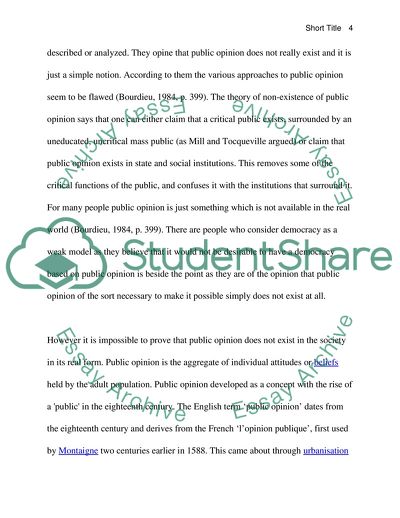Cite this document
(How Should We Conceive Public Opinion if Bourdieu Asserts that Public Article, n.d.)
How Should We Conceive Public Opinion if Bourdieu Asserts that Public Article. https://studentshare.org/philosophy/1706121-bourdieu-asserts-that-public-opinion-does-not-exist-how-should-we-conceive-public-opinion
How Should We Conceive Public Opinion if Bourdieu Asserts that Public Article. https://studentshare.org/philosophy/1706121-bourdieu-asserts-that-public-opinion-does-not-exist-how-should-we-conceive-public-opinion
(How Should We Conceive Public Opinion If Bourdieu Asserts That Public Article)
How Should We Conceive Public Opinion If Bourdieu Asserts That Public Article. https://studentshare.org/philosophy/1706121-bourdieu-asserts-that-public-opinion-does-not-exist-how-should-we-conceive-public-opinion.
How Should We Conceive Public Opinion If Bourdieu Asserts That Public Article. https://studentshare.org/philosophy/1706121-bourdieu-asserts-that-public-opinion-does-not-exist-how-should-we-conceive-public-opinion.
“How Should We Conceive Public Opinion If Bourdieu Asserts That Public Article”. https://studentshare.org/philosophy/1706121-bourdieu-asserts-that-public-opinion-does-not-exist-how-should-we-conceive-public-opinion.


